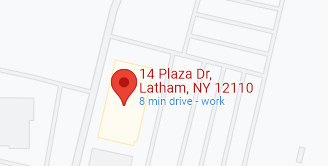Is the Jones Act Un-American?
 American-Made Propane.
American-Made Propane.
A foreign-flagged ship can deliver propane from the North Sea to marine terminals in Newington, NH, or Chesapeake, VA.
But that same ship can’t load in Marcus Hook, PA, and then deliver American-made propane to either terminal even though they are only several hundred miles away.
Instead, everything must be exported to a foreign country regardless of supply and demand.
How does that make sense?
Introducing Wesley Jones.
Senator Wesley Jones sponsored the Merchant Marine Act (Jones Act) in 1920 to “protect” domestic shipyards, shipbuilders, and maritime workers. It’s an antiquated federal statute requiring that all goods transported by water between US ports must be carried on US-flagged and constructed ships and owned and crewed by US citizens. But therein lies the rub because there are very few ships operating today (and no large propane ships) that fit this description.
We understand the importance of a maritime industry to our Navy and our national security. After all, the US is not likely to invite Japan to bid on the construction of our next aircraft carrier anytime soon.
But free enterprise and free trade encourages growth and brings out the innovative and entrepreneurial spirit in Americans. We’re dirt dogs; we figure stuff out. And competition lowers the cost of goods and services for consumers.
My Proposal.
Congress should issue a three- to five-year moratorium of the Jones Act and use the suspension period to allow an independent group to study the economic impact on our economy.
Puerto Rico should also be included in the economic study, as the Jones Act unfairly burdens Puerto-Rican families throughout the year with a much higher cost of goods, services, and energy than any other Caribbean island.
And if US shipbuilders and shipyards need aid to compete globally, then, perhaps, they should receive government subsidies. They won’t be the first or the last American industry to receive help from taxpayers.
Belgian Budweiser?
We don’t require that every business in America must be owned by a US citizen. Or that every truck driven in America must be made in America. Why should ships be any different?
What’s Happening with Propane Prices?
The price of propane has been trading recently at its lowest price level since November 2016, nearly 30 months ago. If you have customers interested in a fixed price for budget purposes, now may be a good time to convert a portion of your index-priced supply with us over to a locked-in price.
For more info, contact Justin Ray.

EIA Weekly Numbers
Total US propane inventories showed an increase of 2.8 mmbbls. for the week ending 5/10/19. That brings national inventory levels (excluding propylene) to 57.1 mmbbls., 52% percent higher than last year at this time.
PADD 2 (Midwest/Conway) inventories showed a gain of 0.6 mmbbls. They currently stand at 12.1 mmbbls., 11% percent above last year’s level.
PADD 3 (Gulf Coast/Belvieu) inventories rose by 1.6 mmbbls. They currently stand at 39.8 mmbbls. (excluding propylene), 87% percent higher than last year.
The Skinny
All of the clean-burning (low-carbon) propane that Ray Energy receives by pipeline and railcar to propane terminals east of the Mississippi is made in North America.
Now if we can get everyone to just “SAY NO” to all of the harmful carbon tax proposals that are floating around many states (designed to hurt consumers with higher and higher taxes) and to just “SAY YES” to American-made propane, things will be better for all of us.
Get Stephen's insights on propane delivered to your inbox every month.
Sign up for our monthly newsletter here.

